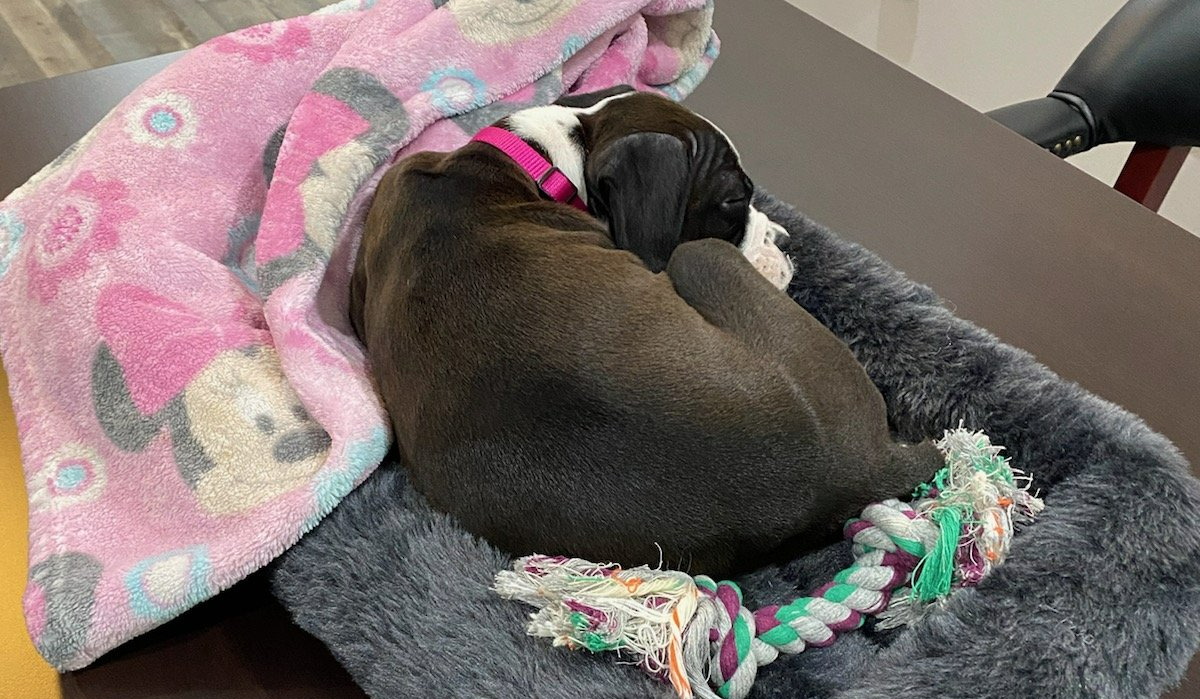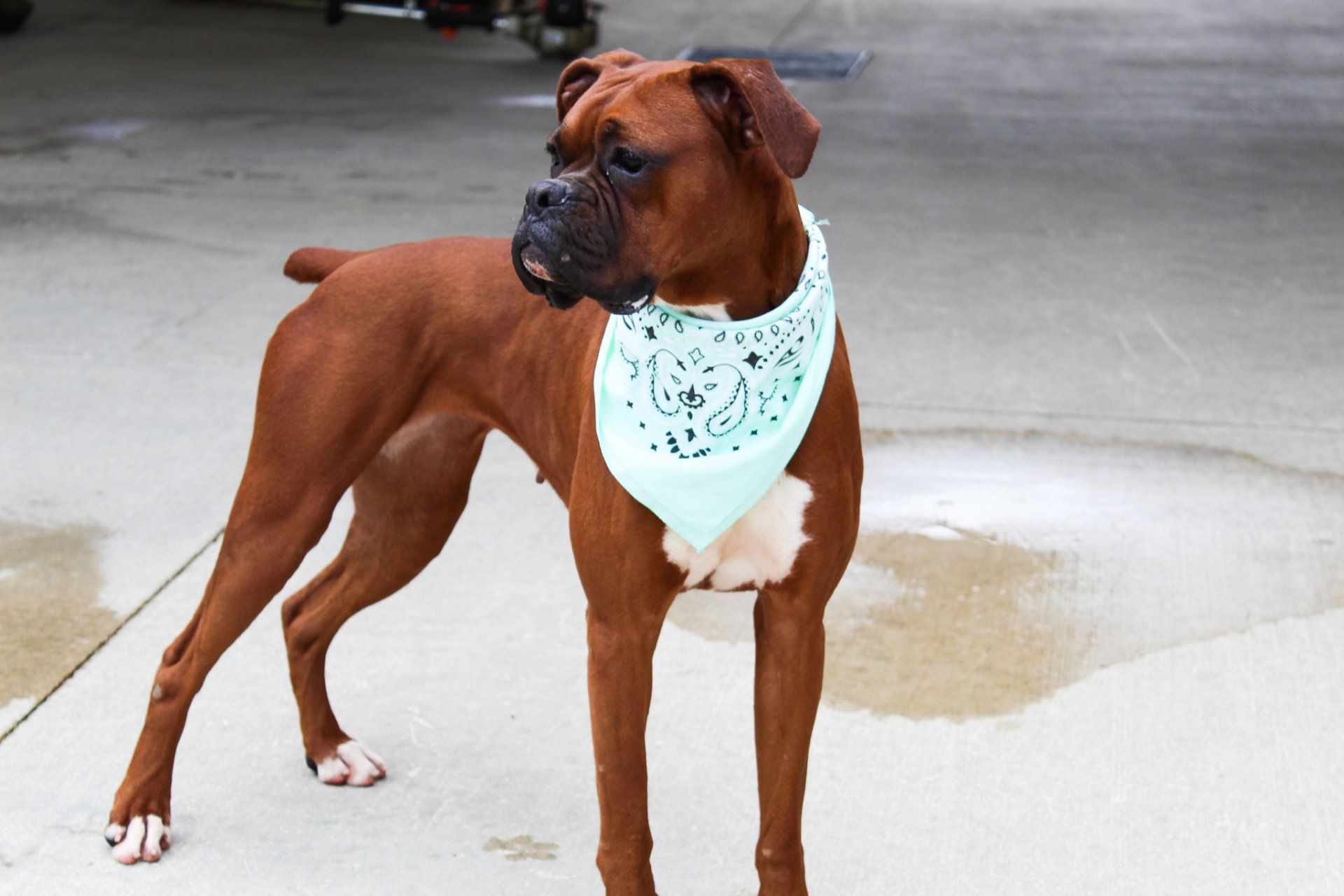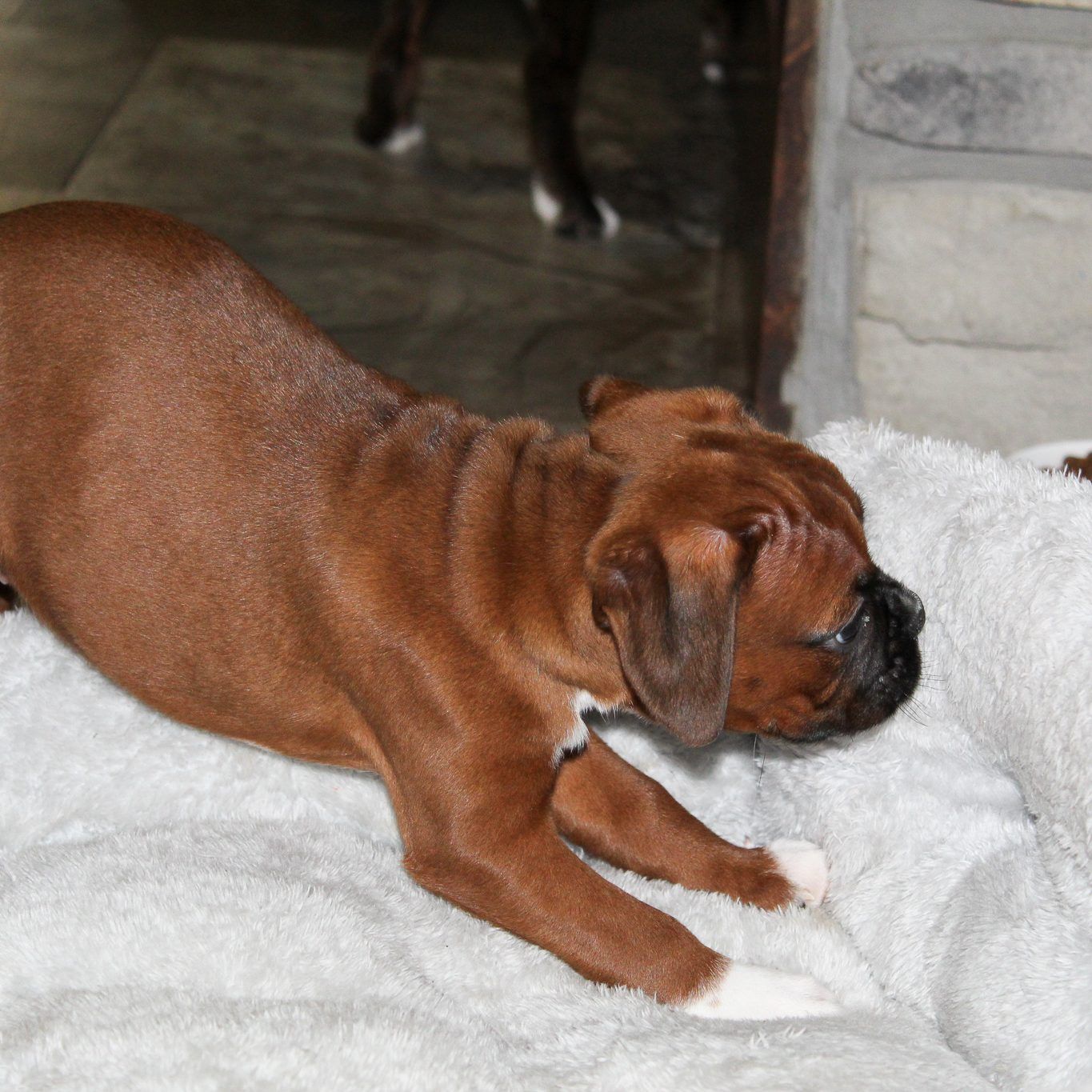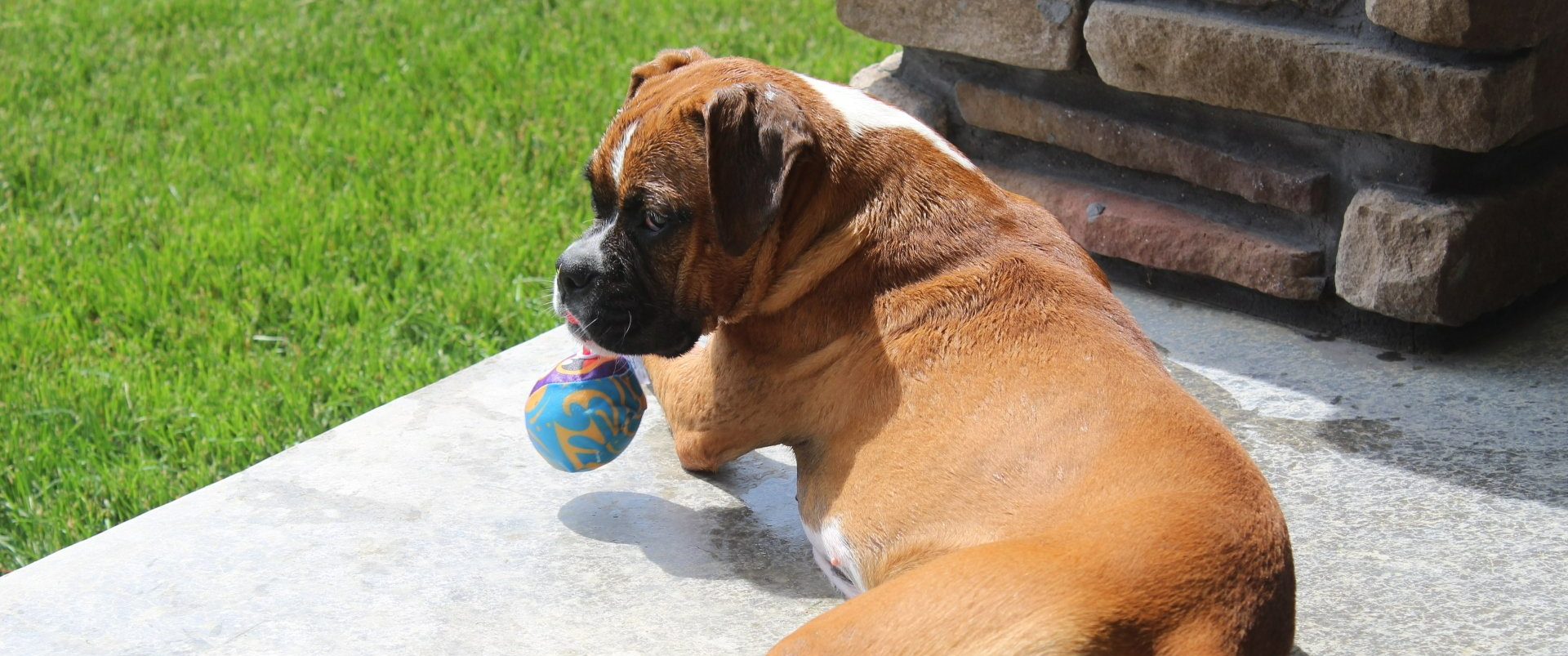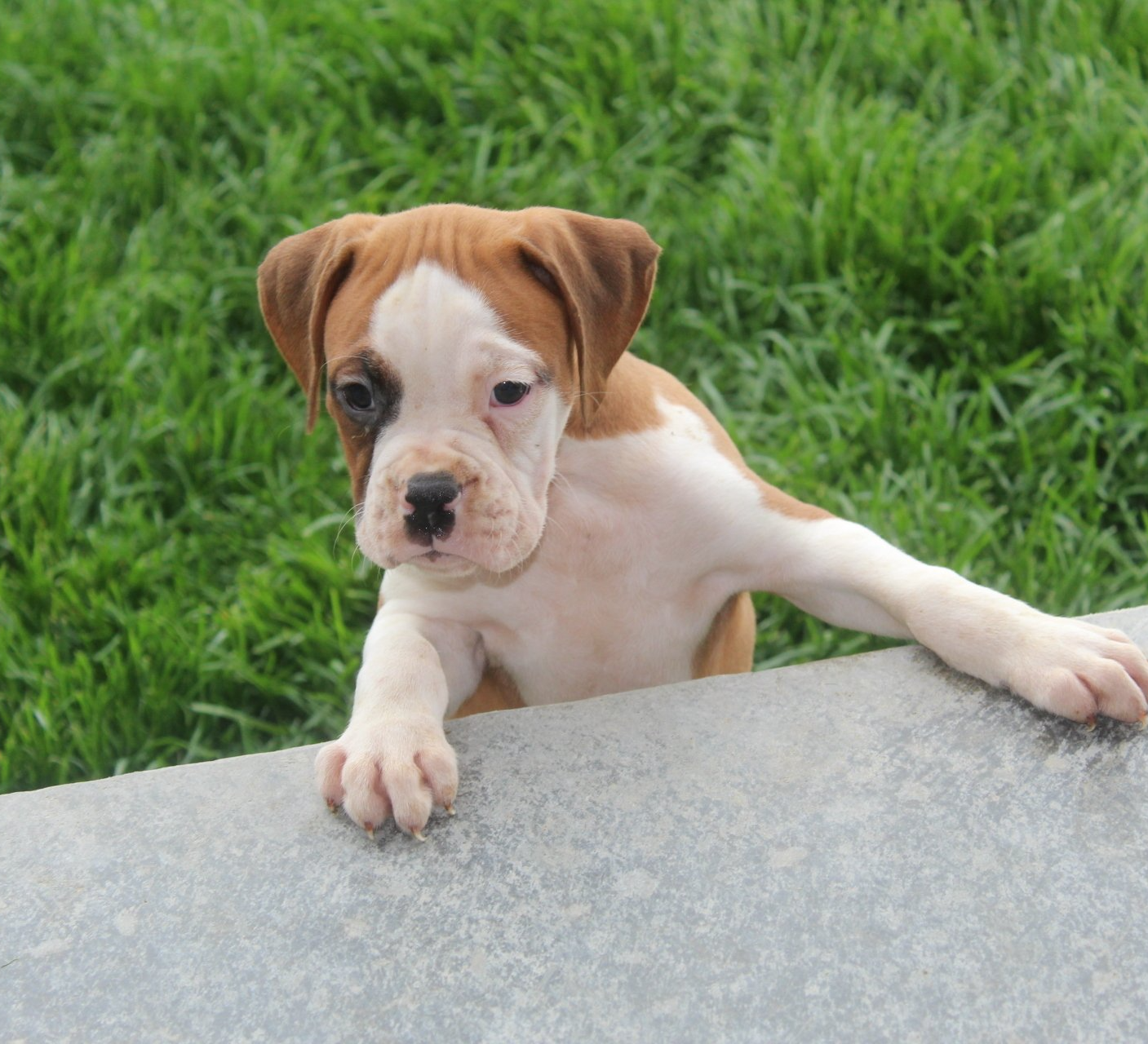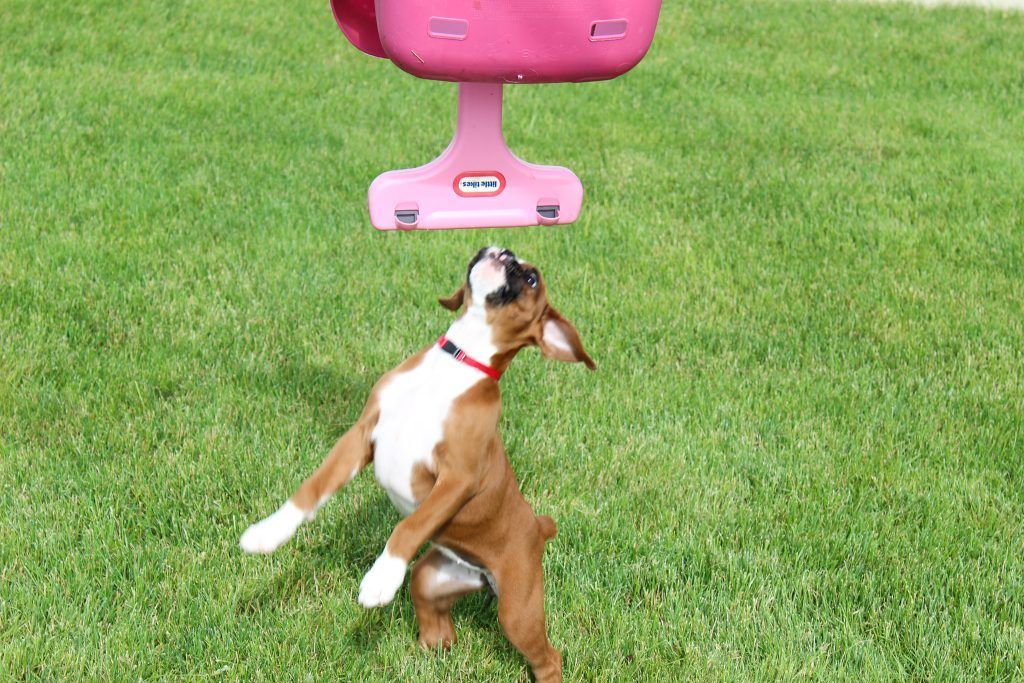YOUR PREMIER BOXER BREEDER
IMPORTANT THINGS YOU SHOULD KNOW ABOUT BOXER DOG BEHAVIOR
Behavior is Important
Do you have plans to get a Boxer dog and you are thinking about what it would be like to own this dog breed? Or you already have one, and you would like to know more about his or her behavior? Would you like to know about Boxer behavior generally so that you can handle your beloved boxer better? This article will answer all of these; so, keep reading to know more about boxer dog behavior.
Each recognized dog breed has behaviors particular to them, and this is one of the defining characteristics that set each dog breed apart and makes them special.
The Popularity of the Boxer Breed
When you set your sights on the Boxer dog breed, it has a stunning and imposing appearance. It looks sleek, powerful and large – and it barks loudly. If you need the perfect watchdog, choose a boxer; and if you need a wonderful companion, the boxer breed plays this role excellently well. Whether your family is small or large, a boxer will get along with everyone in the family, and if there are other dogs, your boxer will live with them peacefully. Even if you have cats, some boxers have no qualms sharing the same home with them.
Is the Boxer Breed Suitable for You? Some Boxer Behavior to Always Remember
Of course, the Boxer is a great breed to own and is quite popular in the United States because of its size; there are some things that you should always remember.
Boxer Puppies Are always Excited
Boxer puppies enjoy bouncing and jumping around. They are always very active, and if you are a lover of active puppies and a large one at that, the Boxer dog breed is suitable for you. If you have a lot of expensive items in your home or you are the type of person who loves to keep things organized and tidy, a boxer dog hopping around actively may not be suitable for you.
Boxer Dogs Make a lot of Interesting Noises
Having a boxer dog often means you are ready to sacrifice peace and quietness. Boxers are in no way quiet as they make a variety of amusing noises. If you love these noises and can deal with them, then a boxer is for you. The boxer dog breed has a wide nose and a flat face, and because of the shape of its head and face, your boxer dog will regularly do the following;
- Snorting
- Grunting
- Sneezing
- Snoring
- Whining
- Passing Gas loudly.
- The Boxer is a Stubborn Breed
Generally, your boxer dog will display a great deal of stubbornness and disregard for rules. You may have a hard time getting your Boxer to follow every command and even sometimes disregard you totally. However, by being patient and consistent, boxer dog training is possible. If your boxer dog refuses to listen, the best strategy is to continue to teach and reinforce hierarchy properly.
A boxer is not an easy breed to own so, stay away from this breed if the easy way is what you seek. A boxer requires effort and constant interaction to be fully trained. If you are prepared for these, you can get yourself a boxer.
The Boxer Breed Can be Destructive
Even a human being becomes restless if they do not get something engaging, fun or entertaining to do for hours. If you are going to raise a boxer, you must be ready to have a range of daily activities to engage in such as exercises and walks to keep his or her heart in top shape, maintain muscle mass and get rid of stored energy. You also have to keep up with the grooming of your Boxer to make sure his or her coat and skin are healthy; regular baths, meals and playtime with interesting toys. If your Boxer gets maximum attention from you when you are around, he or she will behave well in your absence.
Separation Anxiety
This is a thing that happens in both adult and boxer puppies. If you always leave your boxer dog at home for too long every time, separation anxiety can occur. For some dogs, ten minutes alone may be too much for them to handle while some begin to feel nervous after some hours.
If you have observed your Boxer to be sensitive to being left alone, you can put him through some boxer training to cope with being alone. You can start by doing without the hugs and kisses when leaving him alone. This is to avoid giving him the feeling that leaving is a big deal. No matter the amount of attention you give to your boxer dog, withdraw the attention at least 30 minutes before leaving him or her behind in the house so he can get used to your absence.
After feeding your dog and you take him out to defecate, find a way to leave quietly. You can throw him a toy to distract him. Start by leaving him for some minutes and then gradually increase the time. Every time you return, do not make a big deal out of it. Enter calmly and greet your Boxer in a relaxed tone. You need your dog to see your leaving and coming back as normal things to do.
Living with Other Dogs
The Boxer breed generally has no problems if they have to live with other dogs. Two boxer dogs will do well with each other, and if your Boxer is already established, you should first test to see how he or she tolerates another dog before bringing a new dog home. However, most Boxer dogs do remarkably well when it comes to living with other dogs and interacting with them.
Internal Environment
Before you take your boxer dog home, you must first consider space. The average Boxer can cope in a small living space, but if you have a larger living space, it makes things even better. The Boxer breed is a playful animal and will enjoy having a large space to run and play around. If you do not have a lot of space in your living room, you have to think about when your puppy grows into a large adult because even adult Boxers love playing around.
SOME FAQS ABOUT BOXER BEHAVIOR
Why does my Boxer get into a crouch position and starts walking slowly when she sees another dog walking towards us?
This is your Boxer’s way of inviting the other dog to play or engage in a friendly manner. Your Boxer seems to be open to having playmates, and this is good for socializing.
Why is my one-year-old Boxer yet to bark?
Many boxers do not bark but instead do all the protection and intimidation with their size. Some boxers are easy going and quite laid back and will never bark unnecessarily. As long as your Boxer does not show any signs of health problems, you have nothing to worry about.
My Boxer is always hiccupping? What can I do to stop it?
Just like humans, dogs too get hiccups, and in most cases, the hiccups do not last for long. In some rare cases, the hiccups may go on for long, and it could start making your dog frustrated. If your Boxer shows signs of being bothered and frustration due to the spasms in his or her diaphragms, you can get some smooth peanut butter and give him a spoonful. This works in most cases.
SOME ADDITIONAL BOXER BEHAVIOR THAT YOU SHOULD KNOW
Begging Behavior
Make sure you do not indulge this kind of habit. If your Boxer believes that he or she will always get something delicious anytime he/she asks for it; the begging may never stop. You should find out some boxer dog training methods on how to stop begging.
Always Going Outside
Boxers are very active and love to run around but if your Boxer is always going outside, make sure you follow him/her. You should never leave your Boxer outside unsupervised.
Intolerance to Cold
Any breed of dog can be affected by cold and big-sized dogs like the Boxer breed is not exempted. Keep your Boxer active and well-exercised. Encourage your boxer puppy or dog to stay outdoors and fight the cold. If it gets unbearable, take your dog inside immediately.
Jumping on People
While it may look like playful behavior, it is a behavior that you should curb. It is common to have an enthusiastic dog who leaps up at people to greet them. You can try out some effective Boxer training methods to put a stop to this behavior.
Drooling
Drooling is somewhat expected from Boxers, but there has to be a limit. Know how much drooling is normal and how much is excessive, and do something about it right away.
CONCLUSION
Boxer behavior varies from dog to dog, but we have tried to cover the most common ones in this article. If you have more questions or observations about your dog’s behavior, let us know, and we will help.
